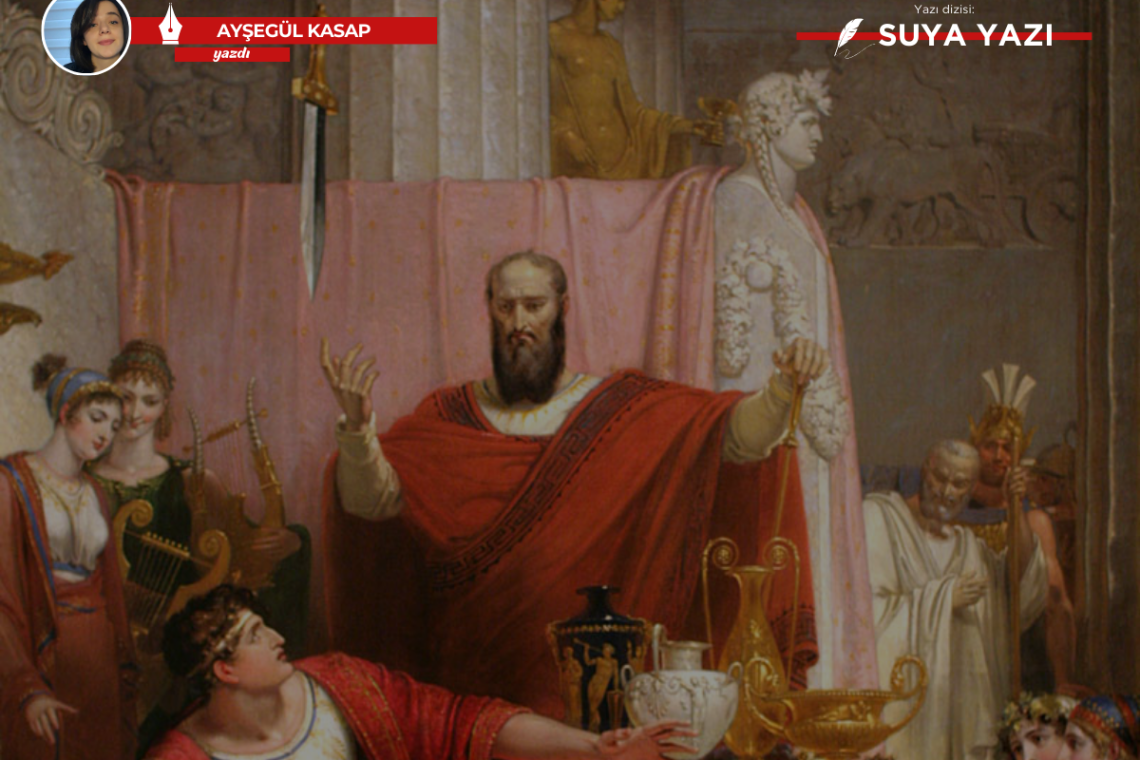This article is the third in our series Writing on Water. Written by Ayşegül Kasap from Diken, it sheds light on the media under the grip of censorship and describes how Diken responds to access ban orders.
In Turkey, journalism is challenging. We practice our profession in an environment where every form of pressure mechanism is applied, and decisions incompatible with democracy and the rule of law have unfortunately become routine. This is why Damocles' sword hangs over our heads as we write and report our news.
When decision-makers see that they cannot suppress journalists despite the pressure, they resort to censorship. They arbitrarily block news reports that serve the public interest. I say arbitrary because many news stories of public concern are removed under the guise of "personal rights."
After reading the 2021 censorship report by the Freedom of Expression Association (İFÖD), I wrote a piece titled "Our elders are very hurt :)" precisely due to this arbitrariness. In the article, I mentioned how "high-ranking public figures" obtain access bans or removal orders for news reports on the grounds of "violation of personal rights."
The impact of passivity on censorship
An important factor that perpetuates this censorship environment is the passive stance taken against it. Regrettably, many news sites, upon receiving access ban orders, immediately remove the news without exercising their legal rights to appeal. These reports often contain public interest. However, Diken stands out as one of the news organizations most resistant to censorship and persistent in its legal fight.
Since 2019, Diken, in cooperation with the Freedom of Expression Association (İFÖD), has led to several landmark decisions. In 2024, their legal struggle bore fruit when the Constitutional Court annulled Article 9 of Law No. 5651, which was used to censor news under the pretext of protecting personal rights. As of October 10, it will no longer be possible to block access to news on the grounds of personal rights violations.
How the process works
Many journalists and citizens are unaware of how access ban decisions are made, which contributes to how easily these decisions are issued. Here’s a brief explanation of the process.
If an access ban order is issued for your content, you are informed via the Access Providers Association (ESB). The ESB sends you an email with the relevant access ban or removal order. You have four hours to remove the news or posts after receiving this email. At Diken, we use this four-hour period to its fullest. Sometimes, as soon as we receive the order, we republish the news with a note saying, "We will remove this news in four hours due to an access ban order." After removal, we file our legal objections and, if these are unsuccessful, take the case to the Constitutional Court.
Recently, we were fined 10,000 lira for not complying with an access ban order. This decision was made using Article 9, which the Constitutional Court has already annulled. I was surprised to read the decision because we had no obligation under the access ban order. Moreover, the Constitutional Court's ruling on the relevant article was clear. There was no legal error on our part, but the prosecutor still imposed the fine.
Thus, the fine has no legal basis. Our fight against this issue is well-documented. Taking risks, we decided not to pay the fine and made the necessary appeals with our lawyers. We do this for press freedom.
The importance of resisting censorship
Press freedom is as vital to a society as water and air. However, just as everything else is normalized, censorship also becomes normalized over time. We have reached a point where people unconsciously apply self-censorship.
Therefore, it is important to resist. Saying, "Wait a minute, there's a mistake here; this is not right," is crucial. Legal rights must be fully exercised. At Diken, we do this and will continue to do so.



